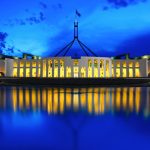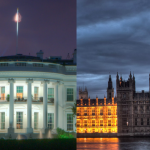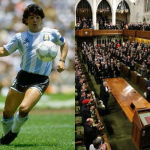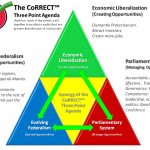Presidential or Parliamentary – Does it Make a Difference?
INTRODUCTION
In recent decades renewed efforts have been made to study and understand the variety of political democracies, but most of those analyses have focused on the patterns of political conflict and more specifically on party systems and coalition formation, in contrast to the attention of many classical writers on the institutional arrangements. With the exception of the large literature on the impact of electoral systems on the shaping of party systems generated by the early writings of Ferdinand Hermens and the classic work by Maurice Duverger, as well as the writings of Douglas Rae and Giovanni Sartori, there has been little attention paid by political scientists to the role of political institutions except in the study of particular countries. Debates about monarchy and republic, parliamentary and presidential regimes, the unitary state and federalism have receded into oblivion and not entered the current debates about the functioning of democratic and political institutions and practices, including their effect on the party systems. At a time when a number of countries initiate the process of writing or rewriting constitutions, some of those issues should regain salience and become part of what Sartori has called “political engineering” in an effort to set the basis of democratic consolidation and stability. Undoubtedly, the constitutional innovations of the post-war period, the German constructive non-confidence vote, and the constitution of the French 5th Republic with its reinforcement of the executive to counter the weaknesses of assemblary parliamentarialism and its semi-presidential regime, have attracted imitators and scholarly attention. But we lack a more systematic and, to some extent, behavioral study of the implications for the political process of different institutions on which to base some of the on-going debates about institutional and constitutional reform. With the notable exception of the book by Kaltefleiter, in which the cases of bipolar executive like the Weimar Republic and the French 5th Republic are analyzed, and the recent paper by Stefano Bartolini on cases of direct election of the head of state in Europe, the differences between parliamentary presidential and semi-presidential regimes have not attracted the attention of political science and receive only limited attention in the two most recent works comparing contemporary democracies, those of Bingham Powell and Arendt Lijphart.
That neglect is largely due to the fact that, with the outstanding exception of the United States*, most of the stable democracies of Europe and the Commonwealth have been parliamentary regimes and a few semi-presidential and semi-parliamentary, while most of the countries with presidential constitutions have been unstable democracies
or authoritarian regimes and therefore not been included in those efforts of comparative study of democracy. Since there were many social, economic, cultural and political factors that appeared central in the analysis of the crisis and breakdown of democracy in those countries, we find practically no mention of the role of institutional factors in those crises. Only in the case of Chile has there been some reference to the conflict between President Allende and the Congress in the analysis of the breakdown of democracy. It might or might not be an accident that so many countries with presidential regimes have encountered such great difficulties in establishing stable democracies. Certainly the relationship between the two main types of democratic political institutions and the political process deserves more attention than it has received.
(* Orion’s note: It is to be noted, that the key factor for the United States’ exceptionalism from the rule of presidential systems being unstable is that the USA is the only presidentialist country to make use of the quasi-Parliamentary Electoral College. The Electoral College follows the same concept as parliamentary democracies in which the indirect election of the chief executive tends to cause greater stability than direct elections which tend to be more volatile and unstable. All other presidential systems, found in Latin America, Africa, and in Asia use direct elections and as such have tended to be unstable and more prone to democratic disruption.)
It would be interesting to examine earlier debates of constitutionalists and intellectuals, particularly in Latin America, about presidentialism and parliamentarism. However, we suspect that they would not be too helpful for our present concerns because they would reflect, on the one hand, the admiration for the great American democratic republic and its presidential government, ignoring to some extent what Woodrow Wilson described as congressional government; and on the other, the bitter criticism of French parliamentarism that was reflected in Latin American legal literature.
In my own work on the breakdown of democratic regimes, at the stage of correcting proofs, I was struck by re-reading O’Donnell’s analysis of the impossible game in post-Peronist Argentina by the extraordinary difficulty to integrate and/or isolate the Peronists, in contrast to the Italian communists, which, in spite of all the strains in Italian democracy, never led to comparable consequences. As a result, I wrote a brief excursus on the political implications of presidentialism and parliamentarism that I have expanded recently and that constitutes the basic theme of this essay. The ideas I intend to develop certainly require further research, using empirical evidence from different countries, particularly in Latin America, but also the Philippines, South Korea, Nigeria and perhaps Lebanon. Further work on the problem would require research on the perceptions of political elites and the public at large of presidents and legislatures in those regimes.
It is striking that most cf the discussion of presidential government in classic works on democratic politics is limited to the United States and a comparison between that country and the United Kingdom with practically no reference to long experience with presidential regimes in Latin America.
This gap in the literature inevitably makes my analysis in this essay debateable. Therefore, it should be taken as a stimulus for further and more systematic thinking and research. Since the peculiar mix between parliamentarism and presidertialism of the Weimar Constitution and that of the French 5th Republic has been the object of more scholarly efforts and not been introduced in Latin America–although in the recent process of redemocratization Portugal has opted for a similar system whose difficulties in recent years would deserve inclusion in the scholarly debates-we shall not refer in detail to those mixed systems.
Parliamentarism and Presidentialism
The basic distinction to which we will refer is naturally based on ideal types, although in the political reality it is far from being neat. In some parliamentary systems, although the government emerges from the political alignments within a body of representatives elected by the people, there is a head of state, a monarch or his representative (the governor general in the Commonwealth countries) or a president with formally limited powers. In certain circumstances these powers have or can play a politically significant role, generally in crisis situations and sometimes creating constitutional crises. In parliamentary systems the only democratically legitimated institution is parliament and the government derives its authority from the confidence of parliament, either from parliamentary majorities or parliamentary tolerance of minority governments, and only for the time that the legislature is willing to support it between elections and sometimes only as long as parliament is not able to produce an alternative government. Although prime ministers are becoming more like presidents with the increasing personalization of party leadership and the voters’ identification with leaders and parties (due to their ability to present an attractive leader), their power ultimately is not derived from the identification of the voters. Additionally, they cannot appeal directly to the people against the representatives supporting them in a legislature or against their own party, except after dissolution and new elections. Conflicts between parliamentary prime ministers and presidents can only emerge in those cases discussed by Bartolini in which a parliamentary government is combined with a direct election of the president by popular vote and those few in which the president has considerable reserve powers. Most presidents in parliamentary systems, like the constitutional monarchs in democratic parliamentary monarchies, have only limited powers and functions. Institutional mechanisms for the elections for such presidents as well as political practices–like in Iceland, Austria and Ireland–have limited the potential conflict between two democratically legitimated offices, those of the president and the prime minister.
Presidential systems are based on the opposite principle. An executive with considerable powers in the constitution, generally in full control of the composition of his cabinet and the administration, is directly elected by the people for a fixed period of time and is not dependent on the formal vote of confidence by the democratically elected representatives in parliament. He is not only the holder of executive power but the symbolic head of state and cannot be dismissed except in the exceptional cases of impeachment between elections. Presidential systems, as the history of the United States shows, might in practice be more or less dependent on the cooperation of the elected representatives in congress. Therefore, the balance between executive and legislative power varies considerably in such systems. It would be most interesting and important to know how that balance has developed in different Latin American countries over periods of time and to what extent the relationships have been cooperative or conflictual between the two powers.
Two features stand out in presidential systems. One is the full claim to democratic legitimacy of the president, often with strong plebiscitarian components, although these are sometimes based on fewer popular votes than many prime ministers in parliamentary systems who, heading minority cabinets, are perceived in contrast, as weakly legitimated by the electorate. To mention just one example: Allende with a 36.2% plurality obtained by a heterogeneous coalition was certainly in a very different position from Adolfo Sugrez with 35.1% of the vote in 1979, as were the opponents Jorge Allesandri with 34.9% and Felipe Gonz~lez with 30.5%, and their less successful contenders Radomiro Tomic with 27.8% and Fraga or Carrillo with 6.1 and 10.8% respectively. A presidential system gives to the incumbent combining the qualities of the head of state representing the nation and the powers of the executive a very different aura and self-image and creates very different popular expectations than those of a prime minister regardless of whatever popularity he might enjoy with the same number of votes.
The most striking fact is that in a presidential system, the legislators, particularly when they represent well organized, disciplined parties that constitute real ideological and political choices for the voters, also enjoy a democratic legitimacy. It is possible that the majority of such a legislature might represent the opposite political choice than that of the voters supporting a president. Under such circumstances, who is on the basis of democratic principles better legitimated to speak in the name of the people? The president, or the congressional majority that opposes his policies? Since both derive their power from the vote of the people in a free competition among well defined alternatives, a conflict is always latent and sometimes likely to erupt dramatically. There is no democratic principle to resolve it and the mechanisms that might exist in the constitution are generally complex, highly technical, legalistic, and, therefore, of doubtful democratic legitimacy for the electorate. Thus, it is no accident that in some of those situations the military intervenes as poder moderador (moderating power). It could be argued that such conflicts are normal in the United States and have not led to serious crises. It would exceed the limits of this essay to explain the uniqueness of American political institutions and practices which have limited the impact of such conflicts, including the very unique characteristics of American political parties which lead many American political scientists to ask for a more responsible, disciplined ideological party system. In our view, the development of modern political parties, particularly in a socially and/or ideologically polarized society, in contrast to the American type of parties, is likely to make those conflicts particularly complex and threatening.
The second institutional characteristic of presidential systems is the fact that presidents are elected for a period of time which under normal circumstances cannot be modified, ,or shortened; and sometimes, due to provisions preventing reelection, cannot be prolonged. The political process therefore becomes broken into discontinuous, rigidly determined periods without possibility for continuous readjustments as political, social and economic events might require. The time of the mandate of a president becomes an essential political factor to which all the actors in the political process have to adjust and this has, as we shall see, many important consequences. One of the more complex is the provision for succession in the case of death or inability of a president, which in some cases is complicated by the fact that the automatic successor is elected separately and can represent a different political option, coalition or party than the president, or has been imposed by the presidential candidate as his running mate without any consideration about his capacity to exercise both executive power and to have plebiscitarian support the president was able to gain at the time of his election. Brazilian history provides us with examples of the first situation, and the succession of Peron by Isabelita of the second. Paradoxically, presidentialism leads to a personalization of power, but the succession between elections might lead to the highest office someone whom neither the voters, the party leaders, nor the political elite would never have, under normal circumstances, entrusted with that office, thanks to legal formal mechanisms rather than a true political process.
Presidential constitutions paradoxically incorporate two opposite principles and assumptions. On the one hand, their purpose is to create a stable powerful executive endowed with popular legitimacy, tending toward plebiscitarian legitimation capable of opposing the particularistic interests represented in Congress on the basis of party, region, local and clientalistic interests, of limited or no legitimacy in a Rousseaunian conception of democracy implicit in the ideal of the people, el pueblo, la ciudadanía, of the democratic rhetoric. Under such circumstances the Anglo-Saxon conception of democracy in which the representation of the variety of interests in society, the pragmatic adjustment between these interests, even the fierce defense of those interests has considerable legitimacy, is a priori de-legitimized and, therefore, is likely to bc moved to arenas other than the political: the sphere of trade union and interest group politics, sometimes the regional and local level in conflict with the central government. On the other hand, those same constitutions are based on a deep suspicion of the personalization of power and on the memories and fear of Caudillismo, going back even further, the fear of an absolute monarch, and therefore introduce many mechanisms to limit that power which might turn out to be arbitrary: foremost, the rule excluding reelection. The number of provisions to control the presidential power–like making certain appointments dependent on congressional approval, different provisions for impeachment and. the whole institutionalization of the Contraloria in Chile or powers granted to the judiciary reflect this suspicion. Sometimes in the political culture a legitimation of exercise of voice by the armed forces as poder moderador is seen as serving that purpose. It would be interesting to explore in depth that contradiction in the constitutional texts and the political practice of Latin American presidential regimes, but any student of Latin American history and politics will be able to point to examples.
It would be useful to explore the way in which that fundamental contradiction between the desire for a strong and stable executive combined with a latent suspicion of that same presidential power affects political decision making, the style of leadership, the political practices and rhetoric of both presidents and their opponents in presidential systems. It certainly introduces a dimension of conflict that cannot be explained simply in terms of social, economic, political or ideological factors. If we were to accept the debateable tendency toward personalismo in the national character and political culture of hispanic society, there can be little doubt that some of those tendencies would be reinforced by the institutional arrangements.
If we had to summarize the basic differences between presidential and parliamentary systems we could say it is the rigidity that presidentialism introduces into the political process and the much greater flexibility of that process in parliamentary systems. This might appear to the proponents of presidentialism an advantage since it reduces some of the uncertainties and unpredictability in principle inherent to parliamentarism where a larger number of actors, parties, their leaders, even the rank-and-file legislators, including those changing loyalties, can at any time between elections make basic changes, see to realignments, and above all, change the head of the government, the Prime Minister. The search for strong power and predictability would seem to favor presidentialism but, paradoxically, unexpected events going from the death of the incumbent to serious errors in judgment, particularly when faced with changing situations, make presidential rule less predictable and often weaker than that of a prime minister who can always reinforce his authority and democratic legitimacy by asking for a vote of confidence.
The uncertainties of a period of regime transition and consolidation no doubt make the rigidities of a presidential constitution more problematic than the possibility of flexible responses to a changing situation in parliamentary systems.
The Political Process in Presidential and Parliamentary Democracies
In the preceding discussion we have focused on the institutional dimensions of our problem. We have referred to some of the legal provisions in presidential constitutions and some of the unwritten rules which differentiate the types of democracies. However, in addition to those aspects we need to focus on the way in which political competition is structured in a system where the president is to be elected directly by the people, the style in the exercise of authority and power, the relations between a president, the political class and the society, and the way in which power is likely to be exercised and conflicts to be resolved. Our assumption is that the institutional characteristics to which we have referred directly or indirectly shape the whole political process and the way of ruling. Once we describe the resulting differences between presidential and parliamentary democratic politics we shall be ready to ask the question which of the two types of democracy provides for greater probabilities of a successful transition, consolidation, and stability of democracy.
Perhaps the most important implication of presidentialism is that it introduce a strong element of zero sum game into democratic politics with rules that tend towards a “winner takes all” outcome. The parliamentary election might produce an absolute majority for a particular party but normally it gives representation to a number of parties, perhaps one with a larger plurality than others among which some negotiations and sharing of power be unnecessary for obtaining majority support for a prime minister or the tolerance of a minority government. This means that the incumbent will be much more aware of the demands of different groups, much more concerned about retaining their support and correspondingly different parties do not lose expectations of exercising a share in power, an ability to control and the opportunity to gain benefits for their supporters.
The feeling of having independent power, a mandate from the people, of independence for the period in office from others who might withdraw support includingthe members of the coalition that elected him, is likely to give a president a sense of power and mission that might contrast with the limited plurality that elected him. This in turn might make the resistance in the political system and in the society he is likely to encounter more frustrating, demoralizing or irritating than for a prime minister who knows from the beginning how dependent he is on the support of his party, other parties, other leaders and the parliament as a body. Unless the prime minister has an absolute majority, the system inevitably includes some of the elements that become institutionalized in what has been called consociational democracy. In this context, it is important to note that when democracy was reestablished in two Latin American countries with a presidential constitution in difficult circumstances, the political leaders of the major parties turned to consociational types of agreements to obviate some of the implications of giving to one party the whole authority associated with the presidency and the zero sum implications for those not gaining that office. I’m referring to the pacto de punto fijo in the case of Venezuela and, more specifically, to the complicated arrangements of the various pacts and the concordancia that accompanied the reestablishment of democracy in Colombia whose main purpose could be described as preventing the zero sum implications of a presidential regime.
The zero sum character of the political game in presidential regimes is reinforced by the fact that winners and losers are defined for the period of the presidential mandate, a number of years in which there is no hope for shifts in alliances, broadening of the base of support by national unity or emergency grand coalitions, crisis situations that might lead to dissolution and new elections, and so on. The losers will have to wait four or five years without any access to executive power, and thereby to a share in the formation of cabinets and access to patronage.
The zero sum game in presidential regimes raises the stakes in a presidential election for winners and losers and inevitably will increase the tension and, as we shall see, the polarization in such elections.
Presidential elections have the advantage that they allow the people to choose directly who shall govern them for a reasonable period of time rather than leave that decision, as in many multi-party systems with parliamentary institutions, to the politicians. Presumably, the president would have a direct mandate from the people. If there are no requirements of a minimum plurality and a number of candidates compete in a single round, the elected might have only a small plurality; the difference between the successful candidate and the runner-up might be quite small and therefore far from justifying the sense of plebiscitarian popular support often attributed to the victor that his supporters and he himself might sincerely feel. To eliminate this element of chance, the electoral laws sometimes provide for a minimum plurality for the victor or some procedure for choosing among those not reaching that minimum. Those procedures might thereby frustrate those having supported the most successful candidate. More frequent is the pattern in which ultimately the election turns into the confrontation of two leading candidates, either in a first or a second round. That is a bipolar choice which under certain conditions is likely to produce considerable polarization. One of the consequences of the confrontation of two viable candidates is that before the elections, broad coalitions are likely to be formed in which extremist parties with some strength cannot be ignored since success might depend on even a small number of votes that these might be able to provide. In a party system in which significant numbers of voters identify strongly with such parties, this gives them disproportionate presence among the supporters of the candidates, making it easy for the opponent to point to the dangerous influence of the extremists and giving them a possible blackmail power over a more moderate candidate. Unless a strong candidate of the center rallies wide support against those who engage in an alliance with more extreme segments of the political spectrum and finds widespread support in the center cutting into the more clearly defined alternatives, a presidential election can encourage centrifugal and polarizing tendencies in the electorate.
It can be argued that in a society where the bulk of the electorate places itself on the center of the political spectrum, shares basically moderate positions, agrees on the exclusion of the extremists and only differs moderately between those leaning toward the left and the right but within a centrist position, potentially negative consequences of presidential competition are excluded. With an electorate of such overwhelmingly moderate centrist leanings, anyone making an alliance or taking positions that seem to lean toward the extremes is unlikely to win an election (as Goldwater and McGovern discovered on election night). However, it seems unlikely that many societies facing serious social and economic problems, divided in their opinions about an authoritarian regime that had at some point significant support, and with parties perceived as extremist with strong organizations and considerable appeal, would fit the model of United States presidential election. In a single-round election, none of the leading candidates in a somewhat polarized society with a volatile electorate can ignore, without taking very great risks of finding himself short of a plurality, those forces with whom he would otherwise not be ready to collaborate. A two-round election with a run-off between leading candidates, who can already point to their own strengths and calculate how much their alliances may contribute to a winning coalition, and where those tending toward the extremes are aware of the limits of their strength, reduces the uncertainties and thereby might help in producing a more rationally calculated outcome, both on the part of the candidate and the voters, that in some ways would come closer to the process of coalition formation in a parliament in search of the prime minister. Let us retain for our analysis the potential for polarization and the difficulty of isolating politically extremist alternatives disliked intensely by significant elites or segments of the electorate.
To illustrate our arguments let us think of Spain in 1977 in the first free election after Franco. First of all, in the absence of a record of the distribution of preferences of the electorate, despite all the information provided by public opinion surveys that politicians obviously would have tended to disregard, the prevailing uncertitude would have made coalition-building difficult. Certainly, the potential front-runners would have been forced to make more than winning coalitions. Assuming that the democratic opposition to Franco would have united behind a single candidate, Felipe Gonzalez, something that would not have been assured at the time, he certainly would not have been able to run independently in the way he did in the parliamentary election given the expectations about the communist strength and the more or less ten percent of the electorate that they actually represented.
A Popular Front image would have dominated the campaign and probably submerged the identity that in most districts–except for some senatorial elections–the different political ‘orces from the extreme left to the Christian Democratic center and the moderate regional parties could maintain.
The problem would have been even more accute for the center right, for those who had supported the reforma and particularly the reforma pactada exit from the authoritarian regime. It is not certain that, in spite of the great popularity he gained during the process evident in the public opinion polls early in 1977, the Prime Minister of the transition, Adolfo Sudrez, could have, and would have, wished to unite all those to the right of the PSOE. At that point, many Christian Democrats, including those who in 1979 ran on the UCD ticket, would have been unwilling to abandon their political friends from the years of opposition to Franco. On the other hand, it would have been difficult for Sudrez to appear with the support of Alianza Popular (AP) that appeared as a continuist alternative with the leaders of seven groups of ex-cabinet members of Franco. Nor does it seem logical that AP would have supported a leader ready to legalize the Communist Party.
Excluding the possibility that the candidate of the right would have been Manuel Fraga, today the accepted leader of the opposition, it still would have been very difficult for Adolfo SuArez to sustain in a presidential campaign his distinctive position as an alternative to any thought of continuity with the Franco regime. In fact, the campaign in 1977 of the UCD was directed as much against AP as against the Socialists, and given the uncertainties about the strength of AP and fears and hostility it generated on the left, much of the ca-paign was centered on Fraga reducing the potential polarization between the longtime democrats “de toda la vida” and the neophites of democracy that constituted such an important part of the UCD elite and supporters. Inevitably the center right and right would have focused their attack on the dangerous supporters of the left democratic candidate, the role of the communists and the peripheral nationalists among his supporters and the compromises he would have made with them. The center left and the left democratic candidate inevitably would have had to bring up the continuity of his opponent with the Franco regime, the importance among his supporters of unreconstructed Francoites and the absence among its coalition partners even of the moderate center democrats, those who after the election and in the years of the constitution-making and the first constitutional government after the 1979 election would play a prominent role in supporting the Suarez governments, for example, the moderate Catalanists.
There can be no question that the presidential election in 1977 would have been much more polarized than the parliamentary election that took place on the 15th of June. Should Prime Minister Suarez have rejected an understanding with AP,or if Fraga, the leader of AP, had rejected an alliance with the Suaristas based on his bloated expectations and his vision of a natural majority of the right and two-party system, the outcome would have been either highly uncertain or more likely a plurality for the left candidate. A president with that popular backing, even with a different outcome of congressional elections, would have felt legitimated to undertake the making of a more partisan constitution and radical changes in the polity and the society. Certainly more than the socialist Prime Minister Felipe Gonzalez would undertake in 1932 after having been five years a member of parliament and his party governing municipalities, and after a party congress in which the more utopian left wing was defeated and a campaign in which the main goal was to win votes in the center of the spectrum where previous elections had shown the bulk of the electorate placed itself. In my view, there can be no doubt (and comments by Felipe Gonzalez about what a victory of his party even in 1979 would have meant for it confirm this) that the process of transition and consolidation of democracy in Spain would have been very different and probably more difficult.
Let me caution that some of the negative consequences of polarization implicit in a presidential competition are not inherent to such a system and are not inevitable if there is a massive consensus in the population on moderate center right, center left positions, and when the limited weight of the extremes is quite apparent so that no one is particularly interested in alliances with them. This is likely when there is a consensus to maintain them isolated or when they themselves opt for isolation to run and it is only to make their propaganda and show their presence. But I doubt that these conditions would be found in many societies in the process of democratization and consolidation of democracy.
The Style of Politics in Presidential Regimes
We have been discussing some of the implications of presidentialism for the electoral process and some of the readers might feel one thing is the election and another is what the incumbent will do after being elected with all the powers granted to him by the constitution. Why should he not, after victory, be ready to overcome the polarization of the campaign, heal the wounds generated, offer the defeated an opportunity to collaborate, ignore and isolate the allies on the extremes of the spectrum and become the president of all the people? Obviously, such a policy and style of governing cannot be excluded, but i. will depend on the personality of a leader and his opponents whether such a policy and style will be chosen. Before an election no one can be assured that this will be the choice of the new incumbent and certainly the process of political mobilization in a plebiscitarian-type context is not likely to facilitate such a turn of events. Paradoxically, such a stance might weaken rather than strengthen the new president since he risks alienating the more extremist components of his coalition–still in competition with the dominant more moderate party of the alliance in Congress and other arenas for the support of the electorate–that would claim betrayal, making it difficult for him to ignore their demands. In addition, if such a stance is not reciprocated by those defeated, his position is likely to be weakened and, if the offer has been made publicly, the refusal is likely to le~d him to a more intransigent stand, identifying even the moderate opponents with the least legitimate members of the coalition that supported his opponent, reinforcing the rhetoric generated during the campaign.
Some of the most important consequences of a presidential system for the style of politics are the result of the nature of the office itself: the powers associated with it and the limits imposed on it, particularly those derived from the need for cooperation with the Congress that might be of a different partisan composition than the wining presidential coalition, and above all, the sense of time that an election for a limited number of years with no right to succession often imposes on presidents. The presidential office is by nature two-dimensional and, in a sense, ambiguous. A president is the representation of the whole nation, of the state, and at the same time he is a representative of a clear political option, a partisan option, and of his constituency, sometimes in addition to represent his party within the coalition that brought him to power.
The symbolic and deferential dimension of power, those aspects of authority that Bagehot saw represented in the monarchy and sometimes successfully incarnated by presidents in parliamentary regimes (like recently, Sandro Pertini in Italy, or Theodor Heuss in the early years of the Federal Republic of Germany), is difficult to combine with the role of the partisan politician fighting to implement his program. It is not always easy to be at the same time the president of all Chileans and the president of the workers, to be an elegant and well-mannered president in La Moneda (The Chilean “White House”) and the demagogic orator in the mass rallies in a stadium. Many voters and key elites are likely to see the second role as a betrayal of the role of Head of State, somewhat above party and symbol of continuity of the state and the nation that they associate with the presidents. A presidential system, compared to a parliamentary monarchy or republic with a prime minister and a head of state, does not allow such a differentiation.
(Orion’s note: Read Karl Aguilar’s well written piece here)
Perhaps the most important consequence of the direct relationship established between a president and the electorate, the absence of any dependency on politicians (to renew his power once elected by the threat of motions of no confidence and the need for confirmation of confidence) is the sense of being the elected representative of the whole people, identifying obviously the people with his constituency and ignoring those voting for his opponents. The implicit plebiscitarian component of presidential authority is likely to make the opposition and the constraints a president will face immediately in exercising his authority, particularly frustrating. In this context, he is likely to define his policies as reflecting the popular will and those of his opponents as representing narrow interests rejected by the people. This sense of identity between leaders and people that encourages or reinforces a certain populism can be a source of strength and power but also can lead to ignore the limited mandate that even a majority, and to say nothing of a plurality, can give to implement any particular program. It encourages certain neglect, sometimes disrespect, and even hostile relations with the opposition.
A president is not, like a prime minister, normally a member of a parliament who, although sitting on the government benches, is still a member of a larger body where he is forced to interact to some extent as an equal with other politicians and the leaders of the other parties, particularly if he depends on their support as head of a coalition government or as a minority government. A president, in comparison, given his special position as Read of State, is not forced to such interactions since he is free to receive or not his opponents and always in the context of his ceremonial status in the presidential palace. In addition, the defeated opponent and the leaders of the opposition occupy an ambiguous position since, although publicly leaders, by not holding any office and not even being parliamentarian cannot act with respect to the president the same way as the leader of the parliamentary opposition in Westminster.
The absence, in a presidential system, of a king or a president of the Republic who can act symbolically as a moderating power deprives the system of elements of flexibility and mechanisms to restrain the exercise of power. A figure who in some cases exercises moderating influence in a crisis situation, even facilitates a parliamentary rebellion against the prime minister, as a neutral power, and maintains contact with forces ready to question the leadership of the prime minister, particularly the armed forces. Even the presidents of legislative bodies who, in a parliamentary confrontation between parties, can exercise some restraint do not have such a position above presidents as they have above a prime minister who sits on the government bench while they preside over the chamber.
Given the inevitable institutional and structural position of a president,
it is not unlikely that the people, i.e., those who support and identify
with him, should feel that he has more power than he actually has or should have, centering excessive expectations on him and getting ready to express those sentiments if manipulated or mobilized by him against any opposition he might encounter. The interaction between a popular president and the crowd acclaiming him can generate a political climate of tension and fear on the part of his opponents. The same can be said about the direct relationship a conservative president or a president with a military background can establish with the armed forces in the capacity of Commander-in-Chief and the opportunities for contact of a president with army leaders in that capacity unencumbered by the presence of a prime minister or a minister of defense normal in parliamentary monarchies or republics.
The position of ministers in parliamentary governments is quite different from that of ministers or secretaries in presidential regimes. There are certain trends that are likely to lead toward a degree of convergence between in principle different systems. We are thinking of parliamentary systems with highly disciplined parties and a prime minister with an absolute majority in parliament, which follow the model of the Kanzlerdemokratie in which the prime minister is free to select his cabinet without parliamentary approval of the individual ministers. All this together with the tendency to personalize power in modern politics, particularly thanks to the television, has reduced the sense of collective responsibility and collegial nature of cabinet government, as well as the independent responsibility of ministers. However, in parliamentary systems when the prime minister is dependent on party coalitions or heads a minority government with parliamentary approval, his relation to the cabinet is likely to be clearly different from that of a president with his cabinet.
The free choice by a president of his collaborators, the opportunity to dismiss them whenever their advice becomes undesireable, and their incapacity in such a case to return to parliament with the independent power base as representatives to question in party caucuses and in the course of parliamentary business the policies of the prime minister is likely to encourage the absence of strong-minded and independent men or women in a presidential cabinet. A president can shield his ministers from criticism much more than a prime minister whose ministers might have to go to parliament to answer questions, interpellations and censure, whenever the principles of division of powers are carried to their logical conclusion. Once more practices and the relative position of congress and the presidency in the constitutional system and the power relations can modify these implicit patterns as they transform modern prime ministers and their cabinets in a direction that makes them more similar to presidential regimes.
Without going into the complexities of che relationship between the executive and the legislature in different presidential regimes, the relative dangers of predominance of one or the other, and the capacity to veto or stalemate decisions on legislation, there can be no doubt that presidential regimes are based on a dual democratic legitimacy and that no democratic principle can decide who represents the will of the people in principle. In practice, particularly in developing countries with great regional inequalities in modernization, it is likely that the political and social composition and outlook of the legislature will differ from that of supporters of the president. The territorial principles of representation, sometimes reinforced by inequalities in the districting or the existence of a senate in federal republics, tends to give a stronger weight in the legislature to representatives of rural areas and small towns of the provinces rather than the metropolis. And it will be easy to claim that the democratic credentials of the representatives of the backward areas are dubious and that they are local oligarchs elected thanks to their clientelistic influences and their social and economic power. Independently of this being true or not and of the degree to which we would disqualify in a democracy those voters who, rather than being influenced by trade unions, neighborhood associations and party machines, feel their loyalty to local notables, tribal leaders,priests, and even bosses,’there will be a temptation for urban progressive elites to question the representativeness of those elected by them. In such a context, it becomes easy for a president encountering resistance to his program in the legislature to mobilize the people against the oligarchs, to claim true democratic legitimacy, deny it to his opponents and confront them with his capacity to mobilize his supporters in mass demonstrations. It is also conceivable that in some societies the president might represent the more traditional or provincial electorates using that support to question the right of the more urban and modern segments in a minority ready to oppose his policies. In the absence of any logical principle to define who has really democratic legitimacy, it is tempting to use ideological formulations to legitimize the presidential component of the system and deligitimize those opposing him, transforming what is an institutional conflict into serious social and political conflicts. An institutional conflict that in some societies is solved by negotiation or legal mechanisms of independent authority like the courts.
The Problem of Continuity and Discontinuity
One of the advantages of a presidential regime is that it assures the stability of the executive. This has been contrasted with the instability of many parliamentary governments, the frequent crises and changes in the prime ministership, particularly in multi-party European democracies. It would seem that the image of governmental instability in the French Third and Fourth Republic, in Italy today, and more recently in Portugal, has contributed to the negative image of parliamentarism held by many scholars particularly in Latin America, and their preference for presidentialism. Such comparisons often overlook the ability of parliamentary democracies to produce stable governments. Under their apparent instability, the continuity of parties in power, the reshuffling of cabinets, the same coalition under the same premier, and the frequent continuity of the same minister in key ministries in spite of cabinet crises tend to be forgotten. It is also ignored that the parliamentary systems allows for the substitution of the prime minister who has lost control over his party, whose continuation in office might create a serious political crisis, or who is involved in a scandal, etc., might be replaced by his party or by the formation of a new coalition, or the withdrawal of support by parties tolerating the minority government without a major constitutional crisis. Unless the parliamentary alignments make the formation of a democratically-based government impossible, parliament with more or less difficulty and with more or less delay should be able to produce a new minister. In some cases of more serious crisis, there is always the alternative of calling for new elections, although they often do not resolve the problem but, like in Germany in the early 1930s, compound it.
In contrast, presidents are elected for a fixed term in office. The kind of changes that produce government crises and the substitution of one prime minister for another are excluded for that time. But this involves also a rigidity in the political process that makes adjustment to changing situations extremely difficult by not allowing the substitution of a leader who has lost the confidence of his own party or the parties that acquiesced to his election. It does not allow his substitution by someone more able to make a compromise with the opposition when polarization has reached an intensity that threatens violence and an illegal overthrow. The extreme measure of impeachment we find in the constitutional texts is extremely difficult to use compared to a vote of no confidence. An embattled president is tempted and can use his powers in such a way that his opponents might not be willing to wait to oust him to the end of his term. But there are no mechanisms to substitute him without violating the constitution unless he were willing to resign. Even resignation under pressure is likely to generate a much greater political crisis since the segment of the electorate that brought him to the presidential palace might feel cheated of its choice and rally publicly to his support. It is difficult to conceive the issue being resolved among the political leaders without bringing thc people into the debate and without using the threat of non-democratic institutions like the courts and more frequently a political intervention by the armed forces. The intense conflict underlying such crises cannot remain more or less hidden in the corridors and smoke-filled rooms of the legislature.
The same rigidity is apparent when an incumbent dies or becomes incapacitated
while in office. In the latter case, there is a temptation to hide his incapacity until the end of his term, a temptation that incidentally also appears in democracies. In the case of death or resignation for one or another reason, the presidential system presumably assures an automatic succession leaving no vacuum of authority creating no interregnum. However, the succession by the vice president who completes the term, that has worked relatively smoothly in the recent history of the United States, sometimes poses serious problems. It becomes particularly acute in cases where the constitution allows separate candidacies for president and vice president and therefore, rather than a running mate coming from the same party and presumably sharing the same political outlook, the vice president would have been elected by a different party or coalition. In such a case, those who supported the former president might feel the successor does not represent their choice and does not have the popular democratic legitimation required for the office. The alternative, nowadays more likely, that both president and vice president have been nominated in agreement still leaves open the question of the criteria used in such a nomination. There are undoubtedly cases in which the vice president has been nominated to balance the ticket, and therefore represents a discontinuity. Cases in which a weak candidate has been imposed by the incumbent so that the vice president might not represent any potential challenge to his power, and in some cases a highly personal choice, like the wife of the incumbent. Nothing in the presidential system assures that the voters or tue political leadership of the country would have selected the vice president to exercise the powers they were willing to give to the former president. The continuity that automatic succession in presidential systems seems to assure therefore might be more apparent than real. There is obviously the possibility of a caretaker government until new elections take place at the earliest possible date. But it is not sure that the serious crisis that might have provoked the need for succession would be the best moment to hold a new presidential election.
Democracy is by definition a government pro tempore, a government in which the electorate at regular intervals can make those governing accountable and impose a change. The maximum time limit for any government between elections is probably the greatest guarantee against omnipotence and abuse of power, the last hope for those in the minority position. It also has, however, very dysfunctional consequences since no government can be assured the time to implement many promises that require time, to carry through between the two elections major programs of social change, to achieve irreversible changes in the society And all governments, democratic and non-democratic, would like to assure themselves continuity over a long period of time. The concentration of power in a president has led in most presidential regimes to rules attempting to limit it to one or at the most two terms by exluding reelection. Those provisions have been frustrating for ambitious men and legal changes in the rule to assure continuismo tempted political leaders. Even in the absence of such ambitions, the consciousness of having a limited time to carry out a program associated with his name must have an impact on the style of politics in presidential regimes. The fear of discontinuity in policies, the distrust of a potential successor, encourages a sense of urgency of what Albert Hirschman has called “the wish of vouloir conclure,” that might lead to ill-designed policies, rapid implementation, impatience with the opposition, and to expenditures which might otherwise be distributed over a longer period of time or policies that might contribute to political tension and sometimes inefficacy. A president wants to be sure that he can inaugurate his “Brasilia” before leaving office, implement his program of nationalizations, etc. A prime minister who can expect his party or the coalition supporting him to win the next election is not likely to be under that type of pressure. We have seen prime ministers staying in office over the course of several legislatures without any fear this would be a step in the direction of dictatorship because it was believed that their removal would take place anytime, without recourse to unconstitutional means.
The time limit and the principle of no reelection, whose value cannot be questioned, also means that the political system has to produce a capable and popular leader every four years and that the political capital accumulated by a successful leader cannot be used beyond that point.
All political leadership is threatened by the ambitions of second-rank leaders, by their positioning themselves for succession and sometimes by their intrigues. But inevitably, the prospect of a succession at the end of the term of the president is likely to foster those tendencies and the suspicions of the incumbent of such threats. The desire of continuity, on the other hand, leads a president to look for a successor who would not challenge him while he is in office, not necessarily the most capable and attractive leader. The inevitable succession also creates a distinctive type of tension: the one emerging between the ex-president and his successor in office, who will be tempted to assert his independence and his differences with this predecessor although both might belong to the same party, a process that might become quite threatening to the unity of the party. The person who has been the president with all the power, prestige, adulation accompanying that office will always find it difficult to resign himself to not having power and being excluded from the prospect of regaining it in the case of failure of his successor. That frustration might have important political consequences, like the attempt to exercise power behind the scenes, to influence the next presidential succession by supporting a different candidate than the incumbent for the next election, etc. Certainly, similar problems emerge in parliamentary systems when a prominent leader leaves the premiership but finds himself capable and willing to return to power. But probably the need to maintain party unity, the defference with which such a leader is likely to be treated by other leaders of his party and by the incumbent, and the awareness of his successor that he needs the cooperation of the powerful leader not sitting on the government bench, might facilitate an alternation in office of leaders of the same party. Such a leader knows that he might be called back into office anytIne, and his successor also knows that such a possibility exists and therefore increases the awareness that a confrontation between them might be costly to both, a situation that very often leads to a sharing of power.
The time limit associated with presidential systems combined with the zero sum character of presidential elections, the winner-take-all position that excludes those defeated from any chance to share in executive power and in the control of the administration, including patronage, is likely to make choices in a presidential election more dramatic and polarizing than most parliamentary elections. The realignments of political forces that in a parliamentary system might take place between elections within the halls of parliament, have to be made publicly before and at the time of an election to assure a winning coalition when the voter confronts his choices. Time becomes a more imoortant dimension of the political process. The pace of politics is likely to be different in a presidential than in a parliamentary system. Compromises and deals will have to be made in public and presumably will be binding for four years at least, while those made in the day-to-day process of governing in a parliamentary system might be less public and always potentially reversible without implying a betrayal of the voters. In fact, deals, agreements, and compromises that might be necessary but could be seen as unprincipled, opportunistic and a betrayal of principles and ideology, are much more difficult to make when they are the object of scrutiny by an electorate in a forthcoming election. Let us remember the difficulties of President Frondizi in his dealings with the Peronistas before elections compared to Christian Democratic politicians like Andreotti in his dealings with the Communists in Montecitorio. A presidential regime leaves much less room for tacit consensus building, shifting coalitions, pragmatic compromises and deals difficult to defend in public, but which might be necessary.
Certainly, such compromises, negotiations, and power-sharing have been used in redemocratization, using consociational or semi-consociational mechanisms in Colombia and, to some extent, in Venezuela and, more recently, in Brazil. But they appear as a necessary deviation from the rules of the system, a way to limit the choices of the voters as what has been labeled somewhat loosely, and pejoratively, “democradura.” There can be little doubt that sometimes redemocratization requires consociational processes, grand coalitions and a variety of pacts; but the presidential system forces such pacts to be formalized and binding for a period of time without opportunity to revise before. In addition, it forces the electorate to forgo free choice–like in the Colombian case–while in a parliamentary system those agreements could be reached after the electorate has made its choice–like in the Spanish consenso.
If not Presidentialism, Will Parliamentarism Assure Democratic Stability?
Our analysis of the problematic implications of presidentialism for democracy should not be read as implying that no presidential democracy can be stable. It only means that the odds in many societies might be less favorable.
It should not be read either as arguing that parliamentary democracies always assure democratic stability, but certainly that they provide a greater flexibility in the process of transition to any consolidation of democracy. Nor doeo it mean that any type of parliamentary regime would do. In fact, to complete our analysis w- would have to discuss the type of parliamentary regime best suited to facilitate such a process and the particular institutional arrangements, including electoral laws, that could achieve those ends better. Among those institutions we can mention some that could lead to relatively stable governments, a strong prime minister, who could guarantee responsible decision making processes, strengthen the role of parties while assuring opportunities for genuine competition, and limit political fragmentation, to mention just a few desirable characteristics. In different countries, however, there might well be distinctive factors to take into account, like federalism, ethnic or cultural heterogeneity, etc. It should be obvious that no one would argue that parliamentary systems would be free of crises and even breakdown.
Although we already referred to the problems inherent to systems with a dual executive-semi-presidential or semi-parliamentary like the Weimar Republic, the Fifth French Republic, or Portugal today-we want to restate our feelings that such a hybrid is not preferable to either a parliamentary regime or a more purely presidential system, except under special circumstances (which no one can be assured in advance, will be present).
All regimes depend, however, on the willingness of society and all major social forces and institutions to contribute to their stability.
They depend also on the consensus to give legitimacy to authority acquired by democratic processes, at least for the time between elections and within the limits of the Constitution. Ultimately, all regimes depend on the capacity of political leaders to govern, to inspire trust, to have a sense of the limits of their power, and to achieve a minimum of consensus. Our argument has been that these qualities would be even more important in a presidential regime where they might be more difficult to achieve. Such a dependency on the qualities of a political leader, which might be found or not at any particular moment, might involve greater risks. Our aim here has been to bring back a debate on the role of alternative democratic institutions in building stable democracies.
* * *
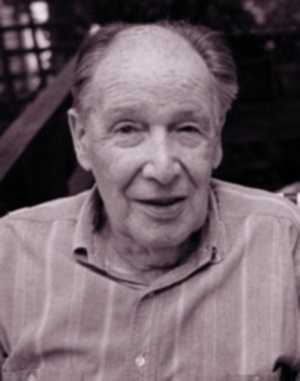 The late Dr. Juan J. Linz, Sterling Professor of Political and Social Science at Yale University was widely known for his contributions to the study of authoritarianism and totalitarianism, political parties and elites, and democratic breakdowns and transitions to democracy. In 1987 he was awarded Spain’s Principe de Asturias ~ in the social sciences.
The late Dr. Juan J. Linz, Sterling Professor of Political and Social Science at Yale University was widely known for his contributions to the study of authoritarianism and totalitarianism, political parties and elites, and democratic breakdowns and transitions to democracy. In 1987 he was awarded Spain’s Principe de Asturias ~ in the social sciences.

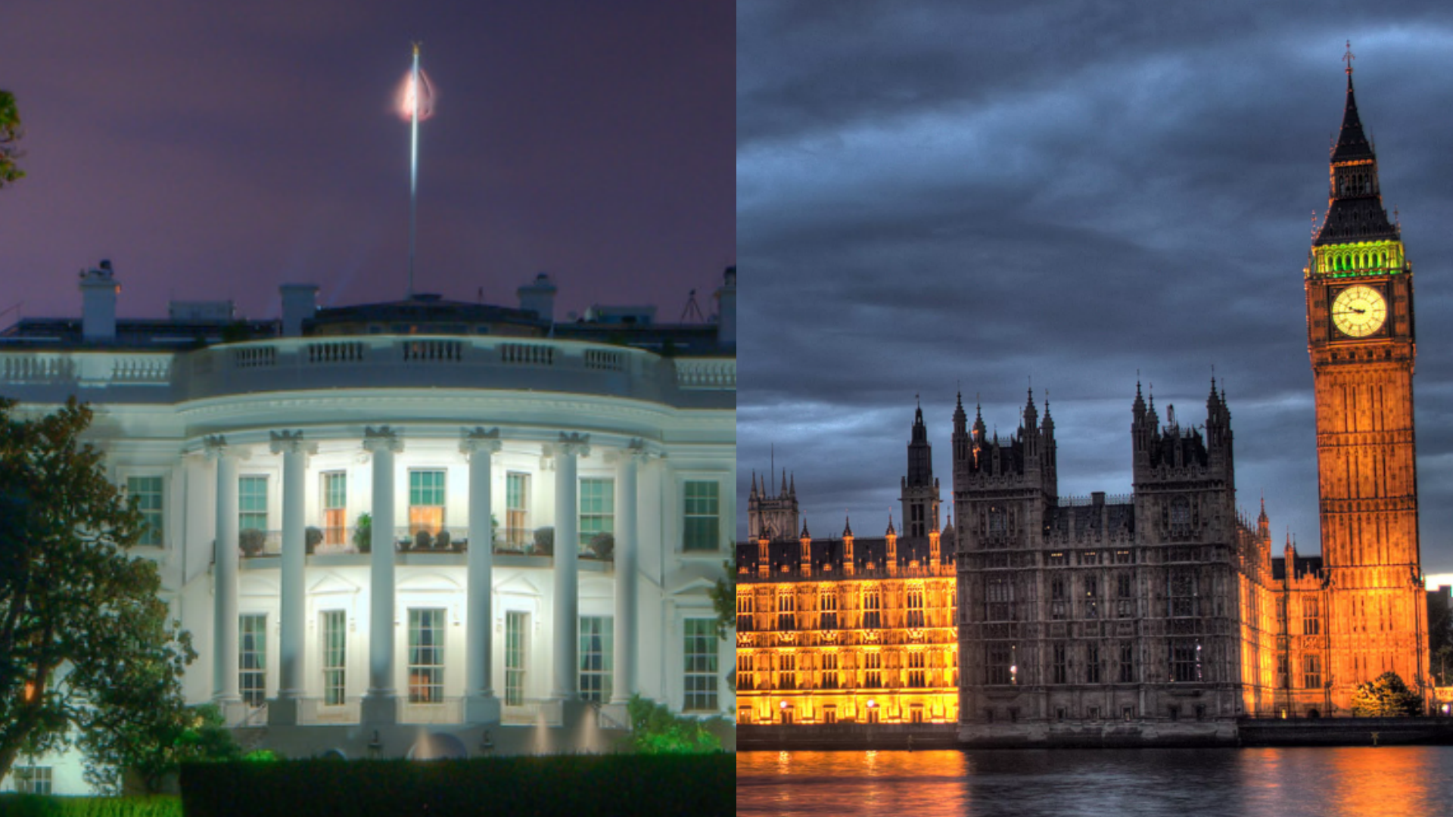
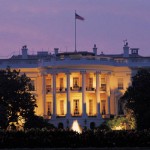
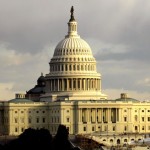

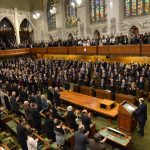
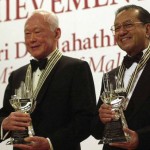






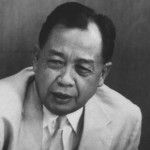

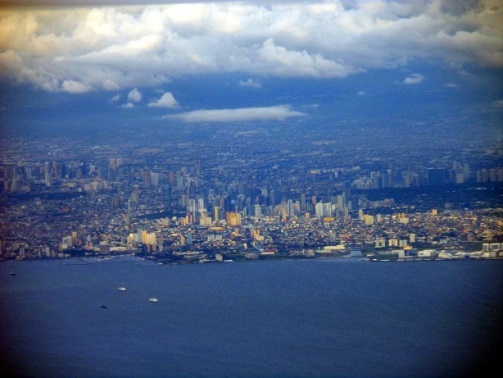
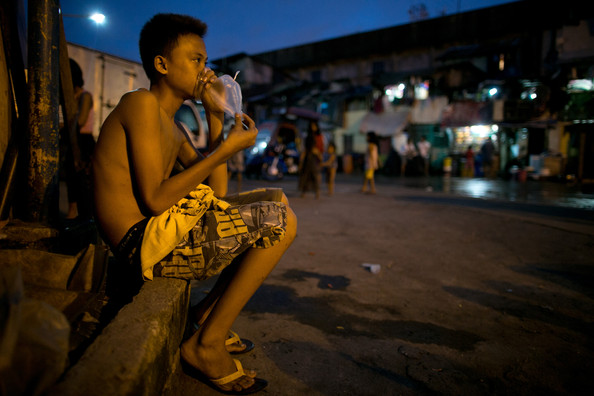
 I believe: This is a CoRRECT™ Video with a very positive message
I believe: This is a CoRRECT™ Video with a very positive message Walang Natira: Gloc-9's MTV Rap about the OFW Phenomenon
Walang Natira: Gloc-9's MTV Rap about the OFW Phenomenon
